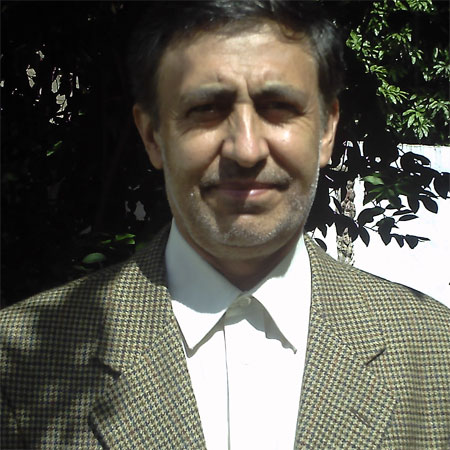
Says Iran will never misuse uranium enrichment
The head of Iranian diplomacy in The Gambia, Saied Zare, has lauded the relationship between The Gambia and Iran, which he said continues to grow from strength to strength thanks to recent visits by President Mahmoud Ahmadinejad to The Gambia.
"As a matter of fact, the relationships between Iran and The Gambia is in a good position thanks to the visit of President Mahmoud Ahmedinejad to The Gambia in 2006 for the AU summit, and in November last year, which was a turning point.
"Since then, the relationship between the two countries becomes better and better day by day," he said.
Ambassador Zare, who was speaking in an exclusive interview with this paper, said after three years of his stay in the country, he has found that The Gambia registered significant development, all thanks to the country?s leadership.
?As a diplomat, comparing Gambia today and three years ago, I really find that there is huge development in this country, and that the President is trying his best for the benefit of this country and its people," he said.
The Iranian diplomat thanked Allah that, today, the relationship between Gambia and Iran is gradually growing.
Commenting on the political front, Ambassador Zare noted that The Gambia and Iran actually have common interests in international affairs and a common point on international issues.
On the economic front, he said Iran is doing its best, trying to help their brotherly Gambian people, even though the support is sometimes different from the one Gambia received from other countries.
The quantity, he added, is not important, what is important is the quality. "Our interest in The Gambia is just to help our brothers and sisters, and to have a better relationship," he stated.
He revealed that in the agricultural section of the Embassy in The Gambia has, over the years, managed some training courses for farmers in this country with a view to helping them have better knowledge of agriculture. "We have also held trainings on mushroom production for women farmers, and it was very useful to them," he noted.
On the education front, the Iranian envoy stated that, in future, Iran will work on sending some Gambian students to Iran to go to Iranian universities to be trained there, considering that the capacity of the University of The Gambia is not that much big.
This, he further stated, will help them be more equipped, especially on technical areas, and will go a long way in helping them work for their country.
He disclosed that he is working on plans to provide books for the University of the Gambia because, as he put it, some students will find it difficult to buy some of the books needed.
Also commenting on Iran's position on its uranium enrichment, Ambassador Zare described the criticisms of Iran?s uranium enrichment as an international propaganda, noting that Iran will never misuse its uranium enrichment.
According to him, it is the right of every country to have nuclear technology, and those who are members of the IAEA have the right to actually benefit from these facilities.
"It's really confusing why some countries can use this technology that the others cannot use. This is not fair. We do not need any atomic bomb, because we are not at war with any country," Iranian envoy said, adding that Iran's nuclear technology can be used in agriculture, medicine, universities, and in many other research areas.
Iran, he went on, is an independent country, and has the right to acquire nuclear technology for peaceful purposes. "I think this is just an international propaganda, because Iran is never going to misuse its nuclear technology," he averred.
Read Other Articles In Article (Archive)


